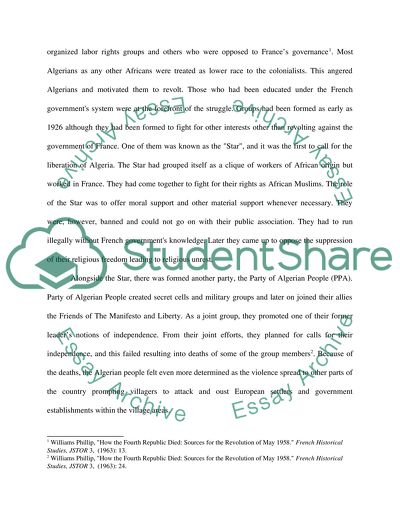Cite this document
(“Battle of Algiers Essay Example | Topics and Well Written Essays - 1250 words”, n.d.)
Retrieved from https://studentshare.org/history/1685701-battle-of-algiers
Retrieved from https://studentshare.org/history/1685701-battle-of-algiers
(Battle of Algiers Essay Example | Topics and Well Written Essays - 1250 Words)
https://studentshare.org/history/1685701-battle-of-algiers.
https://studentshare.org/history/1685701-battle-of-algiers.
“Battle of Algiers Essay Example | Topics and Well Written Essays - 1250 Words”, n.d. https://studentshare.org/history/1685701-battle-of-algiers.


